Japanese vending machine in Edo-period town sells a very rare type of tofu
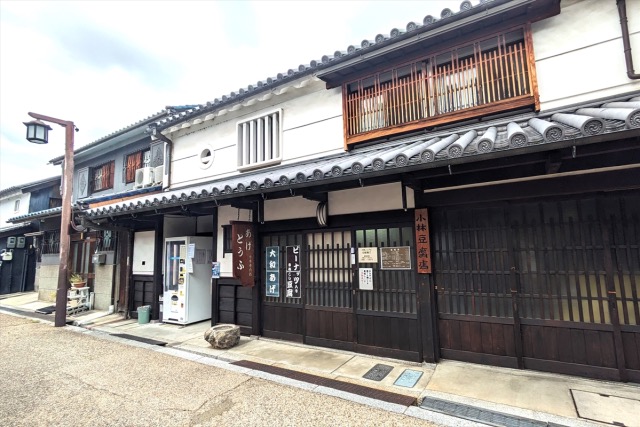
There’s something so beautiful about modern conveniences in traditional surroundings.
Japan’s ancient capital of Nara is world-famous for its giant Buddha statue and free-roaming deer, but a 30-minute drive from the main tourist spots will take you to Imaicho in Kashihara City, where you’ll find a beautifully preserved merchant town that dates from the Edo period (1603-1868).
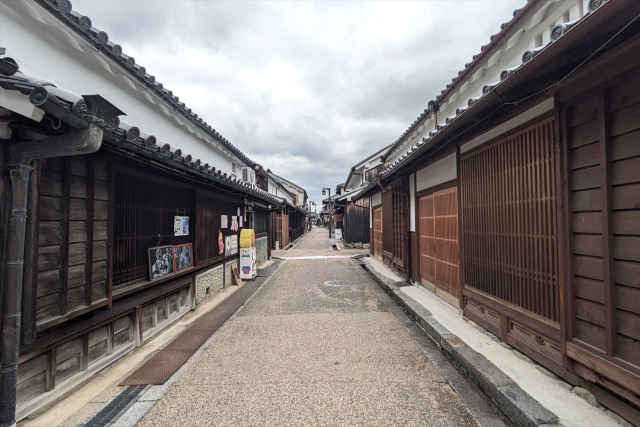
The buildings will transport you back in time to an era when samurai walked the land, but that doesn’t mean it’s devoid of convenience. That’s what our reporter Haruka Takagi discovered when she visited the area recently and spotted something that beckoned to her from beneath one of the eaves.

▼ There, blending in seamlessly with the landscape, was…a vending machine.
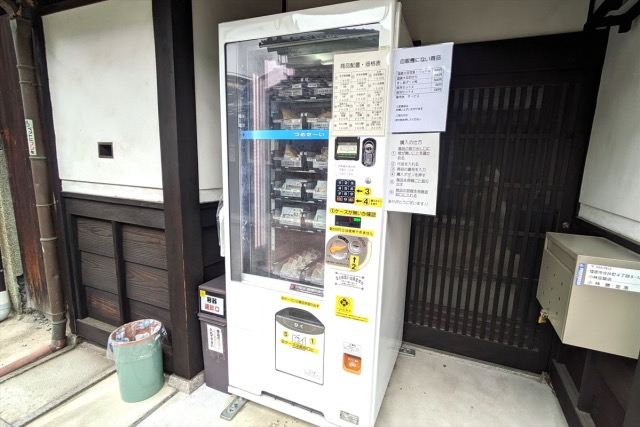
It was a surprise find in an unlikely area, because this cluster of around 500 traditional buildings is so important to the country it’s been classified as one of Japan’s Important Preservation Districts for Groups of Traditional Buildings.
Lots of visitors wear traditional yukata (summer kimonos) here, adding to the old-timey feel that seems to be in stark contrast to the vending machine. When Haruka approached the machine, she discovered it belonged to the Kobayashi Tofu Shop behind it, which was closed at the time, but there was a sign on the door that read:
▼ “Sales are via Vending Machine. Operating Hours From 1 p.m. Monday to 6 p.m. Sunday. “
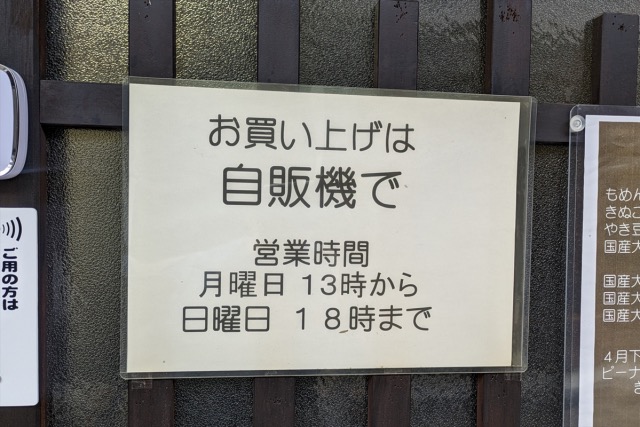
Heading over to the machine, Haruka saw the list of products it contained extended well beyond just regular tofu, with over 17 options covering things like konnyaku (devil’s tongue), atsuage (deep-fried tofu), and warabi-mochi (bracken-starch dumplings). Surprisingly, there were non-vending machine products available as well — things like a litre (33.8 ounces) of soy milk, okara (soy pulp), sushiage (thin skin of fried tofu), and cold packs were sold directly at the store, with customers being asked to ring the doorbell to purchase them in person.
▼ Vending machine products (left), non-vending machine products (right)
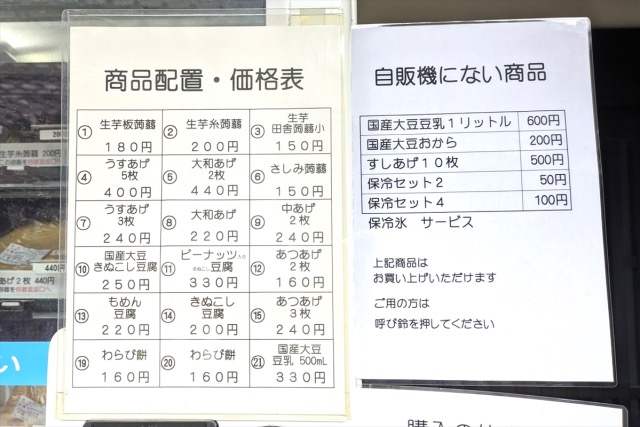
Peering through the glass window on the vending machine, Haruka decided to purchase a pack of silken tofu, which contained peanuts. This was something she hadn’t tried before, and it seemed to be good value for 330 yen (US$2.32), considering it was handmade on site in such a long-established store.
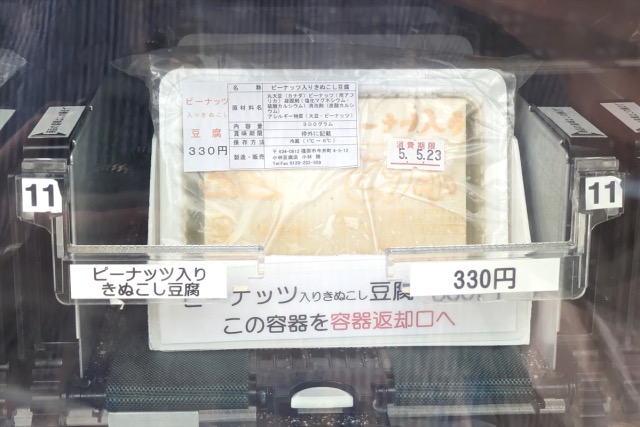
Inserting her money into the machine, Haruka punched in the number corresponding to the product and watched as her purchase dropped into the tray below.
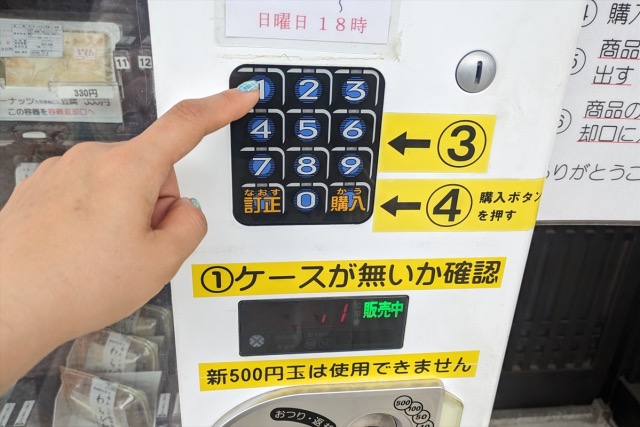
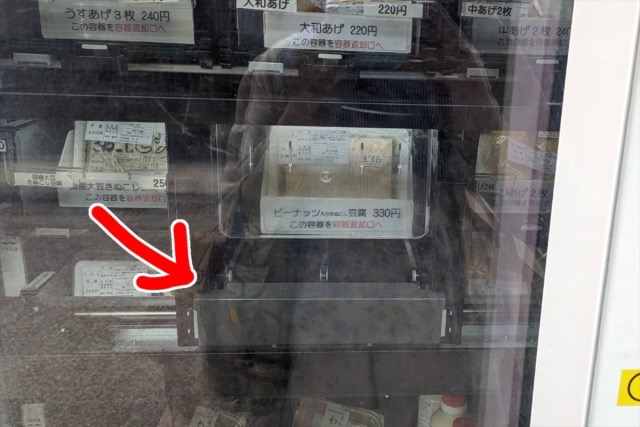
It had dropped a fair way, so Haruka found herself wondering if the tofu had withstood the shock and survived unscathed.
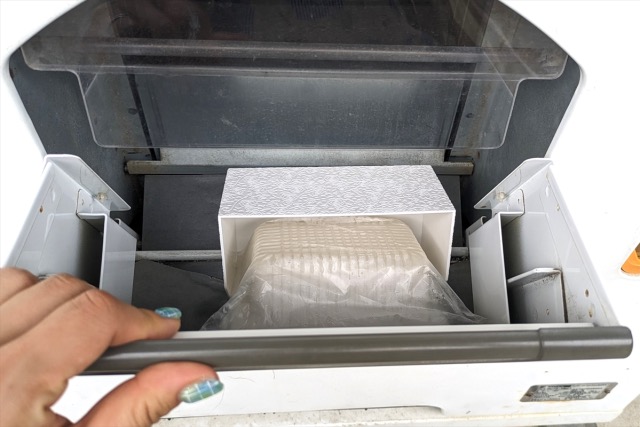
▼ It was in perfect condition!
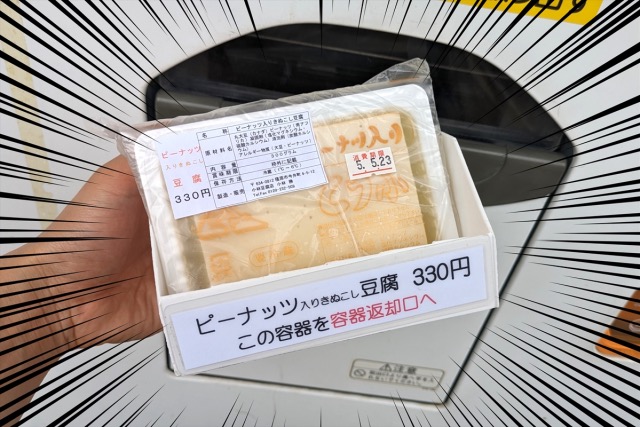
Helping to cushion the tofu was the plastic case in which it had been displayed, and Haruka couldn’t help but admire the thought that went into devising such a safeguarding system. Of course, the plastic case is only to protect the product when it drops into the tray so once you’ve retrieved your product, simply pop the case into the collection box next to the vending machine so it can be reused in future.
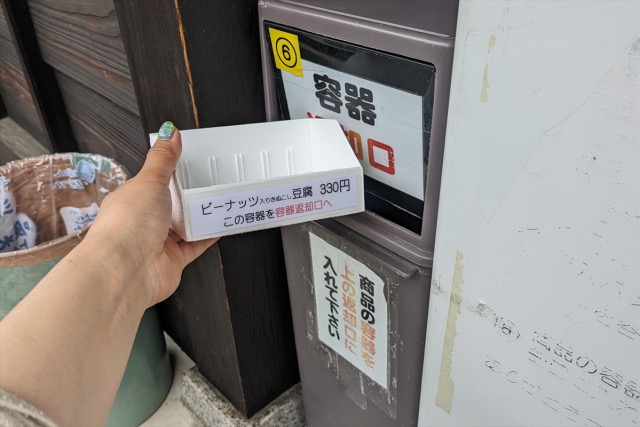
Haruka was excited to return home and try her new tofu, which had an adorable picture of a peanut character on it. Peanut tofu, or “Jimami tofu” as it’s known in Japan, is a local specialty in Okinawa and Kyushu, and it’s slightly different to regular tofu as it’s made with kudzu (an edible vine) starch instead of soybeans.
▼ However, the tofu Haruka purchased is different to Jimami tofu, as it’s made with soybeans, so it’s just like regular tofu, only with peanuts inside.
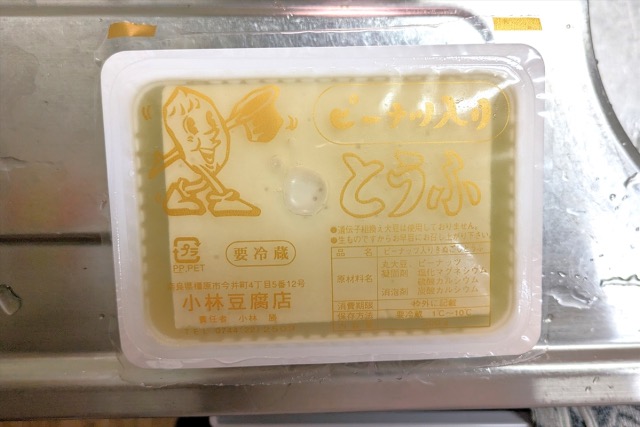
After opening the pack, Haruka sliced the tofu and placed it on a plate. Judging by the texture, this was quite a firm type of silken tofu, and although she peered at it closely, she couldn’t spot any peanuts.
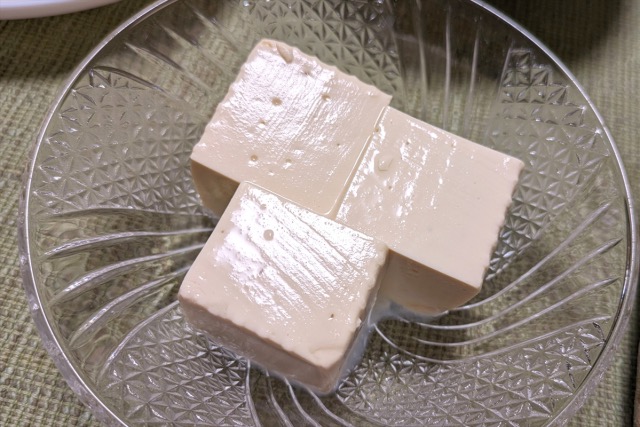
Adding a splash of soy sauce, Haruka tasted one of the tofu pieces and found that the texture was irresistibly smooth. However, the flavour of the tofu took her by surprise, with her mind needing a moment to process the unique combination of soybean and peanut. This pairing resulted in a strong taste and aroma, making her feel as if regular tofu was bland by comparison.

Unfortunately, the peanut silken tofu appears to be a limited-time product that’s only available until the end of June, but judging by the freshness and refined flavour, Haruka reckons any tofu you buy here would taste delicious.
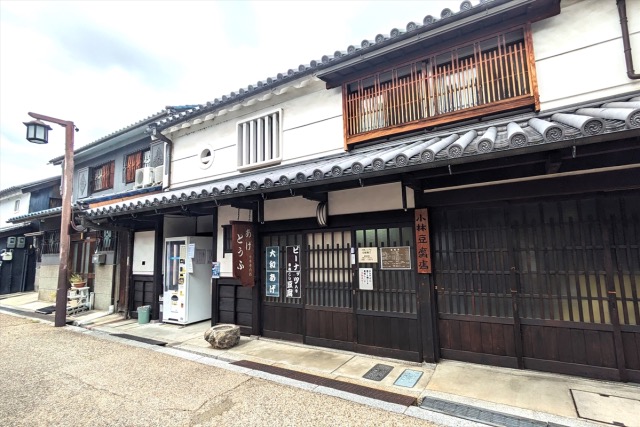
Haruka hadn’t expected to come across a vending machine during her trip to Imaicho, let alone find an unusual tofu she’d never tried before. It just goes to show how places like these can surprise you, especially down in Nara, where you can also buy crackers from vending machines to feed the deer!
Vending Machine Location
Kobayashi Tofu Shop / 小林豆腐店
Address: Nara-ken, Kashihara-shi, Imaicho 4-5-12
奈良県今井町4-5-12
Photos ©SoraNews24
● Want to hear about SoraNews24’s latest articles as soon as they’re published? Follow us on Facebook and Twitter!
Credit:

0 comments: